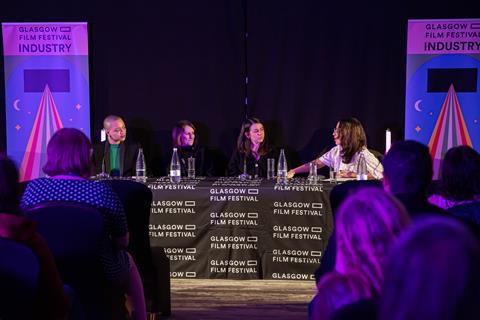
The film and TV animation industry needs a shake-up to combat its lack of gender balance, according to Lauren Castro, Netflix’s manager of adult animation comedy: “I’ve been in this [industry] for the better part of a decade, and I’m still one of the only female animation executives in adult animation,” she said.
”I love my colleagues, but you look around and it seems like it’s been a lot easier for men to rise up the ranks,” she continued. “I’ve always had to put my head down and hope that I wasn’t being hired to be the token female, but you have always got that in the back of your head.”
Castro, who has previously held positions at Paramount, DreamWorks and Marvel and is based in the US, was joined in the discussion on gender disparity in the animation field by Helen Argo, a producer at the four-time Oscar winning Bristol-based animation studio Aardman, and Glasgow-based illustrator and animator Isabel Barfod, at an International Women’s Day (March 8) talk at Glasgow Film Festival.
Argo noted: “Aardman is quite 50/50 in terms of gender, but that’s probably across the board, with certain areas more weighted towards men than women. All my bosses at Aardman have been female.”
“It’s important we remember these values, these capitalistic, patriarchal values run through a lot of women too,” observed Barfod. “They uphold it as well in the visual arts – who is afforded trust, who is afforded a second chance, who is afforded to not being asked too many questions.”
The panel also emphasised the need to push for more diversity across all metrics in animation. “We don’t just want to see the same version of Family Guy over and over again,” said Castro.
“The hardest things for us and all of us in the animation industry is that drive through recruitment and where you are finding those people from and that talent to be more diverse,” said Argo. “For commissioners like Sky, we have to report our targets. We’ve been working with Sky for a number of years now and you can see it is improving, but so, so slowly, particularly in those key head of department and creative roles.”
Barfod called on illustration courses to do more to examine unconscious bias when training the next generation of animators and illustrators. “I found it very frustrating at university,” said Barfod, “I studied illustration, which is essentialising people’s features. Within that it’s incredibly important to understand the history of racist tropes and racist drawings, and understand how you can respectfully draw people.”

























No comments yet